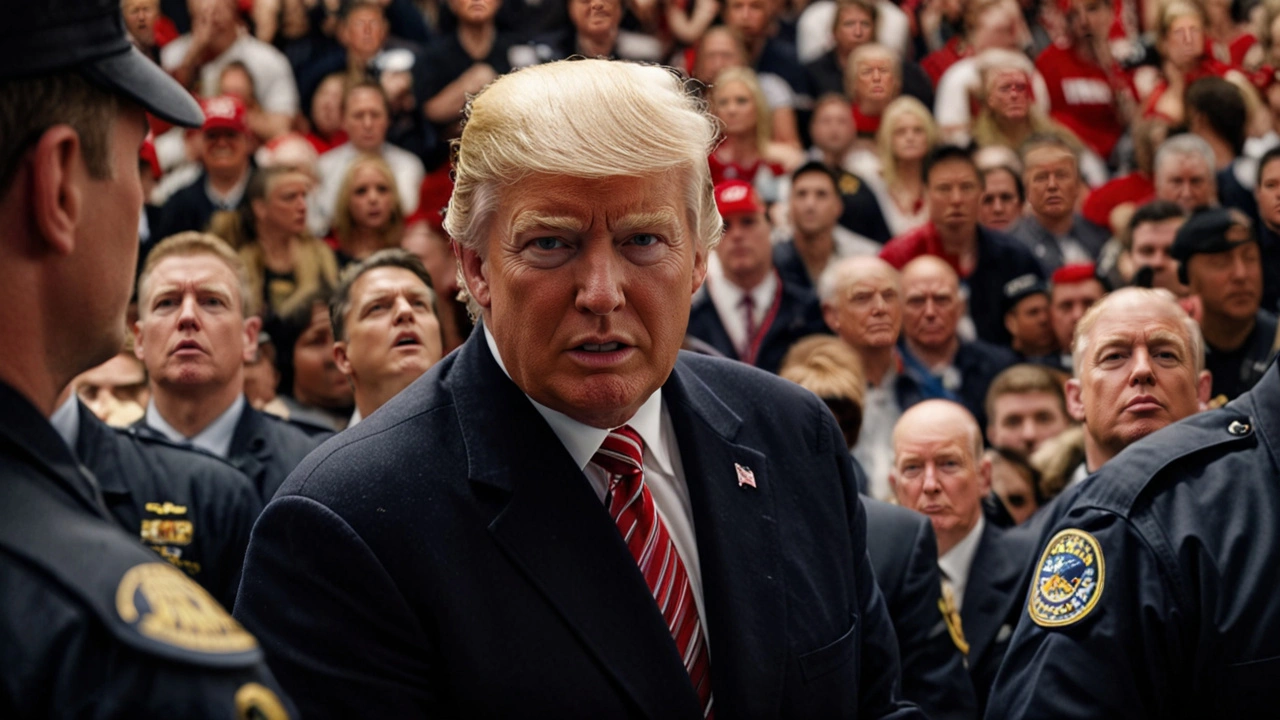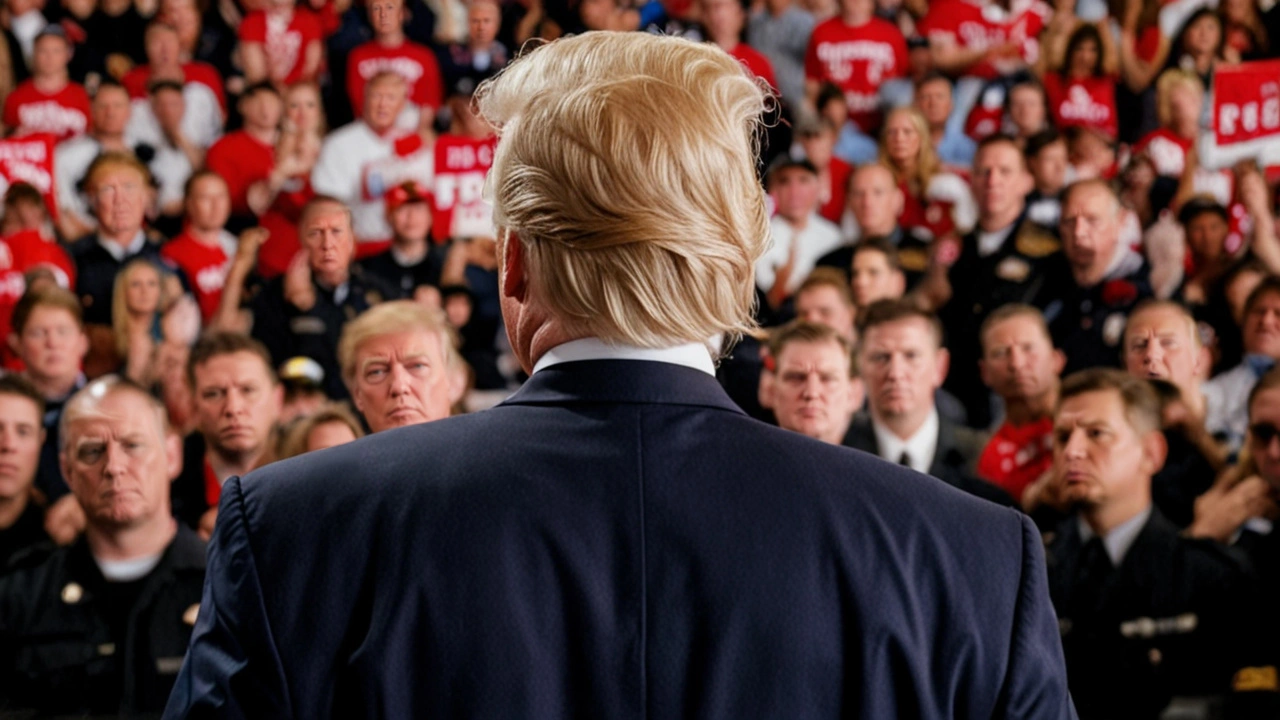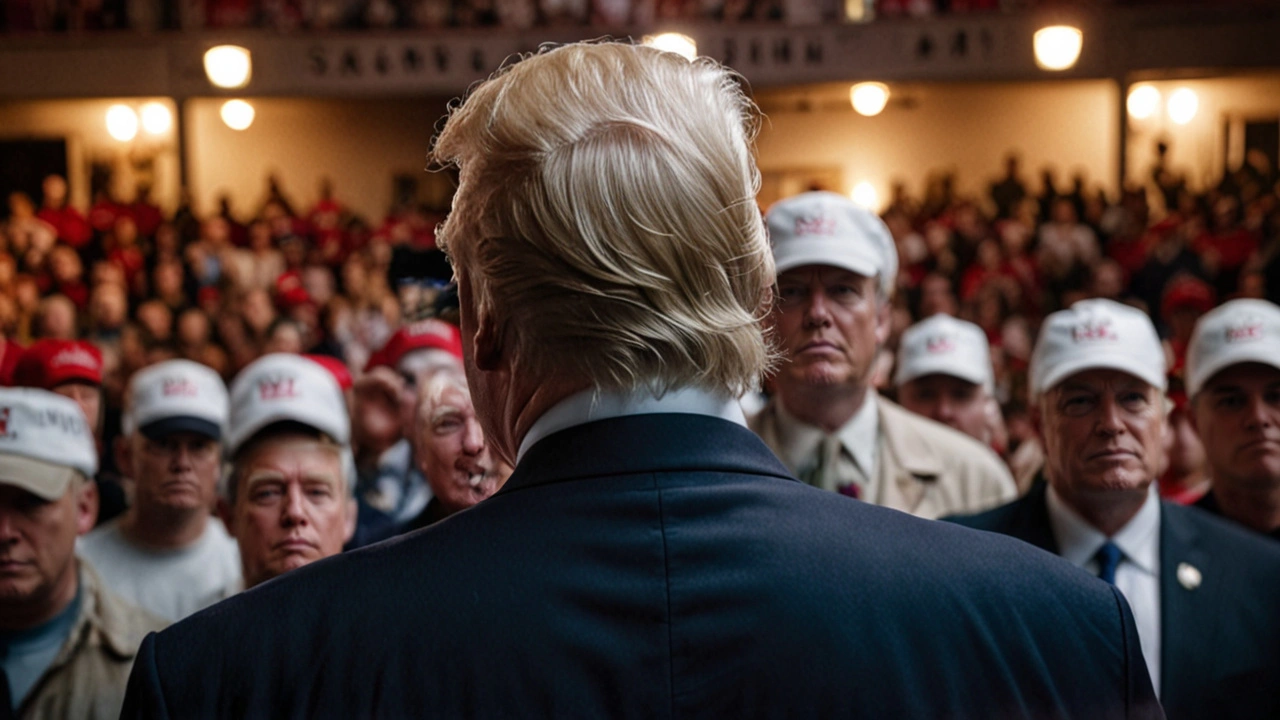World Leaders Condemn Political Violence After Shooting at Trump Rally
The shocking news of a shooting incident at a rally for former US President Donald Trump has reverberated across the globe, prompting strong condemnations from numerous world leaders. The event, held in Pennsylvania, took a violent turn when Trump was reportedly shot in the upper section of his right ear. The injury caused significant bleeding, raising immediate concerns about his well-being among his supporters and campaign team.
Despite the severity of the situation, Trump's campaign team swiftly addressed the incident, reassuring the public that the former president was in stable condition. After receiving prompt medical attention, he was later discharged from the hospital. Although the attack has left a deep scar on the political landscape, it has also brought forth a unified stance against violence in politics from leaders around the world.
International Leaders Speak Out
German Chancellor Olaf Scholz was among the first to express his dismay over the incident, underscoring the importance of maintaining peace and order in political processes. Scholz's sentiments were echoed by the European Union's foreign policy chief, Josep Borrell, who emphasized that violence has no place in democratic societies. The urgency of these statements reflected a shared understanding of the potential consequences of such an attack on global political stability.
British Prime Minister Kier Starmer, addressing the press, conveyed his heartfelt concerns for Trump's recovery while condemning the act of violence. He highlighted that incidents like this not only threaten individual lives but also the very foundations of democracy. Starmer's views were supported by Japanese Prime Minister Fumio Kishida, who added that political violence is an affront to the principles of freedom and justice that democratic nations strive to uphold.

Calls for Unity and Rejection of Violence
Australian Prime Minister Anthony Albanese also weighed in, calling for a collective rejection of violence in all forms. He emphasized that political disagreements should be resolved through dialogue and democratic processes, not through acts of aggression. This stance was mirrored by Canadian Prime Minister Justin Trudeau, who stressed the importance of ensuring the safety and security of political figures.
Israeli Prime Minister Benjamin Netanyahu condemned the attack in the strongest terms, noting that such actions could set a dangerous precedent if left unaddressed. Hungarian Prime Minister Viktor Orbán, known for his strong stance on law and order, called for immediate and decisive measures to prevent similar incidents in the future.
A Unified Stance from Key Nations
Italian Prime Minister Giorgia Meloni and Indian Prime Minister Narendra Modi also issued statements denouncing the attack. Both leaders underscored that political violence undermines the democratic process and must be met with a unified response. Brazilian President Luiz Inácio Lula da Silva added that the international community should stand together to combat such threats and ensure the safety of political figures everywhere.
Perhaps most notably, US President Joe Biden, Trump's rival in the last election, expressed his condemnation of the attack. In a statement, Biden highlighted the need to reject all forms of political violence, regardless of party affiliations. His words carried significant weight, serving as a reminder that political rivalry should never cross the line into violence.

Reflections on Political Climate and Responsibility
The incident at the Trump rally has sparked numerous reflections on the current political climate in the United States and beyond. Several analysts have pointed out that the rise in political tensions and divisive rhetoric could be contributing factors to the increase in such violent incidents. As leaders and citizens grapple with the implications of the attack, there is a renewed call for responsible political discourse and actions.
The global response to the shooting underscores the shared abhorrence of violence in any political context. It is a stark reminder that, while political ideologies may differ, the commitment to peaceful and democratic processes remains a common ground among nations. As the investigation into the incident continues, it serves as a poignant call for unity, civility, and the unyielding rejection of violence in all its forms.

ashli john
July 14, 2024 AT 23:22We all stand together in this dark moment and keep hope alive for a future without political violence.
Kim Chase
July 20, 2024 AT 18:15It’s really sad to see such hate taking a shot at democracy and i hope everyone can find a way to talk things out instead of letting anger explode. we need to stay open minded and remember that the real enemy is the violence, not each other.
David Werner
July 26, 2024 AT 13:09They want you to think it’s just an isolated incident, but the truth is far darker! Every headline is a piece of the puzzle that the powers that be don’t want you to see. The shadows are moving and our freedoms are on the line, and what’s next could be far worse.
Paul KEIL
August 1, 2024 AT 08:02From a policy analytics perspective the incident underscores systemic risk vectors within political event security protocols and necessitates a recalibration of threat assessment frameworks.
Horace Wormely
August 7, 2024 AT 02:55The statement is accurate; however, it is essential to emphasize that any security lapse must be addressed through comprehensive procedural reforms, not merely rhetorical condemnation.
christine mae cotejo
August 12, 2024 AT 21:49The shooting at the rally is a stark reminder of how fragile our democratic institutions can become when rhetoric turns into violence.
History is littered with examples where words inflamed passions that erupted into bloodshed, and this event adds a fresh scar to that painful ledger.
What is particularly unsettling is the speed with which leaders from across the globe have converged to denounce the act, signaling a unified moral stance.
Yet, beyond the headlines, there lies a deeper societal fissure that fuels such extremism, often fed by echo chambers and disinformation.
When citizens feel alienated or unheard, they may become susceptible to the allure of radical narratives that glorify aggression.
The role of media in shaping public perception cannot be ignored, as sensationalist coverage can unintentionally amplify fear and division.
Moreover, the political polarization that has intensified over recent years creates an environment where compromise is seen as weakness.
In this climate, any perceived slight against a political figure can be weaponized, leading to tragic consequences.
It is incumbent upon policymakers to prioritize comprehensive civic education that fosters critical thinking and empathy among voters.
Investing in community outreach programs can bridge gaps, providing platforms for dialogue that withstand the temptation of violence.
Security measures at political events must also evolve, incorporating advanced risk assessment technologies while respecting civil liberties.
International cooperation on best practices for event safety can further mitigate threats that transcend national borders.
Ultimately, the collective response to this tragedy should not merely be a chorus of condemnation but a concrete plan of action.
Healing will require not only medical care for those injured but also a societal commitment to reject intimidation as a political tool.
Only by reaffirming our dedication to peaceful discourse can we ensure that future rallies are venues for ideas, not battlegrounds.
Douglas Gnesda
August 18, 2024 AT 16:42Your analysis captures the multifaceted nature of political violence and highlights actionable steps; integrating these recommendations into legislative frameworks could significantly enhance civic resilience. Engaging stakeholders now will turn words into tangible safeguards for our democratic processes.
Abhijit Pimpale
August 24, 2024 AT 11:35Addressing the root causes is essential for sustainable peace.